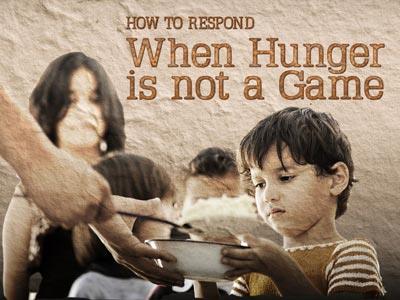-
Sermon On Imprudence
Contributed by William Meakin on May 23, 2022 (message contributor)
Summary: Imprudence is defined as the quality of being unwise, because you fail to consider the possible results of your actions.
Matshona Dhliwayo, a Zimbabwean-born and Canadian based philosopher, entrepreneur and author once remarked: “Making money is intelligence; saving money is wisdom. Squandering money is imprudence. Sharing money is virtue.” Proverbs 14:8-10 confirms: ”The wisdom of the prudent is to discern his way, but the folly of fools is deceiving. Fools mock at the guilt offering, but the upright enjoy acceptance. The heart knows its own bitterness, and no stranger shares its joy.”
Imprudence is defined as the quality of being unwise, because you fail to consider the possible results of your actions. It includes such measures as temerity, foolishness, irresponsibility and recklessness. William Penn Adair Rogers, otherwise known as Will Rogers, an American vaudeville performer, actor and humorous social commentator once remarked: “Too many people spend money they haven’t earned, to buy things they don’t want, to impress people that they don’t like.” Proverbs 21:20 reminds us: “There is treasure to be desired and oil in the dwelling of the wise; but a foolish man spendeth it up.”
Monitory wealth is often considered beneficial by some, but there is a well-known phrase that states: "A fool and his money are soon parted." This saying is concordant to the above Bible verse of Proverbs 21:20 in modern-day terminology.
Impetuous behaviour can often lead to bitter regret. The saying "Act in haste, repent at leisure is particularly prevalent in this general warning.
Imprudence is considered in certain respects concomitant to vices. These may include certain activities that, in themselves, are not considered transgressional, but perhaps more along the lines of wrongful or foolish thinking. It tends to reflect flaws in a person's character which can relate more to moral turpitude rather than actually performing sin. A spendthrift is a typical example where no crimes are actually committed, but the deeds may be considered non-conformist to acceptable practices. Little thought of the conceptual consequences of a particular action has been deliberated before it actually happens. It could be regarded as impulsive.
Colossians 2:1-5 reminds us: “For I want you to know how great a struggle I have for you and for those at Laodicea and for all who have not seen me face to face, that their hearts may be encouraged, being knit together in love, to reach all the riches of full assurance of understanding and the knowledge of God's mystery, which is Christ, in whom are hidden all the treasures of wisdom and knowledge. I say this in order that no one may delude you with plausible arguments. For though I am absent in body, yet I am with you in spirit, rejoicing to see your good order and the firmness of your faith in Christ.”
There was once a middle-aged woman who always demanded the best from life. She had acquired a loving, good-looking and moderately wealthy husband who succumbed to her every whim. This, she considered, was her greatest achievement in life. They lived in a lovely house in a select area of Epping, close to the forest.
It was a four-bedroomed Neo-Georgian style house situated in large grounds with two bathrooms, one of them en-suite to the master bedroom. The kitchen had every labour saving device imaginable. The remainder of the house was beautifully furnished with antiques and fine works of art. A Steinway grand piano was the central feature of the lounge. How much was deemed an actual necessity and how much simply for the purposes of show were considered indistinguishable. Hebrews 13:5 reminds us: "Keep your life free from love of money, and be content with what you have, for he has said, "I will never leave you nor forsake you."
If her husband bought her jewellery, it had to be the best that the shop could offer. Diamonds, pearls, rubies and sapphires adorned her beautiful private collection. If their neighbours bought a new car, then she had to have one also. It not only had to be of equal value, but more expensive and exclusive. Holidays were always the most costly available with five-star luxury hotels and resorts consistently selected. George Bernard Shaw, an Irish playwright, critic, polemicist and political activist once remarked: “One turns the cheek: the other kisses it. One provides the cash: the other spends it.” Frugality never entered her life. The word didn’t exist in her vocabulary. She always purchased the most expensive and latest fashion in clothing, perfume and household utility items that reputedly were also the best. Proverbs 20:23 states: “Unequal weights are an abomination to the Lord, and false scales are not good.”
Her husband was becoming desperate at the state of his credit card balances. They were always close to the agreed limit. The outgoings each month significantly exceeded the income and he was forced to dip into his savings virtually every month to make ends meet. When that had eventually depleted, he was then obliged to obtain more credit cards and loans to survive. At her insistence, every bank account and credit card were always in joint names to provide easy access to funds for her pleasure. Obtaining additional credit had become a regular function in life. Although he loved his wife, he tried in vain to persuade her to reduce the unnecessary spending that had become such a focal point in her life. Malachi 3:10 reminds us: “Bring the full tithe into the storehouse, that there may be food in my house. And thereby put me to the test, says the Lord of hosts, if I will not open the windows of heaven for you and pour down for you a blessing until there is no more need.”

 Sermon Central
Sermon Central



